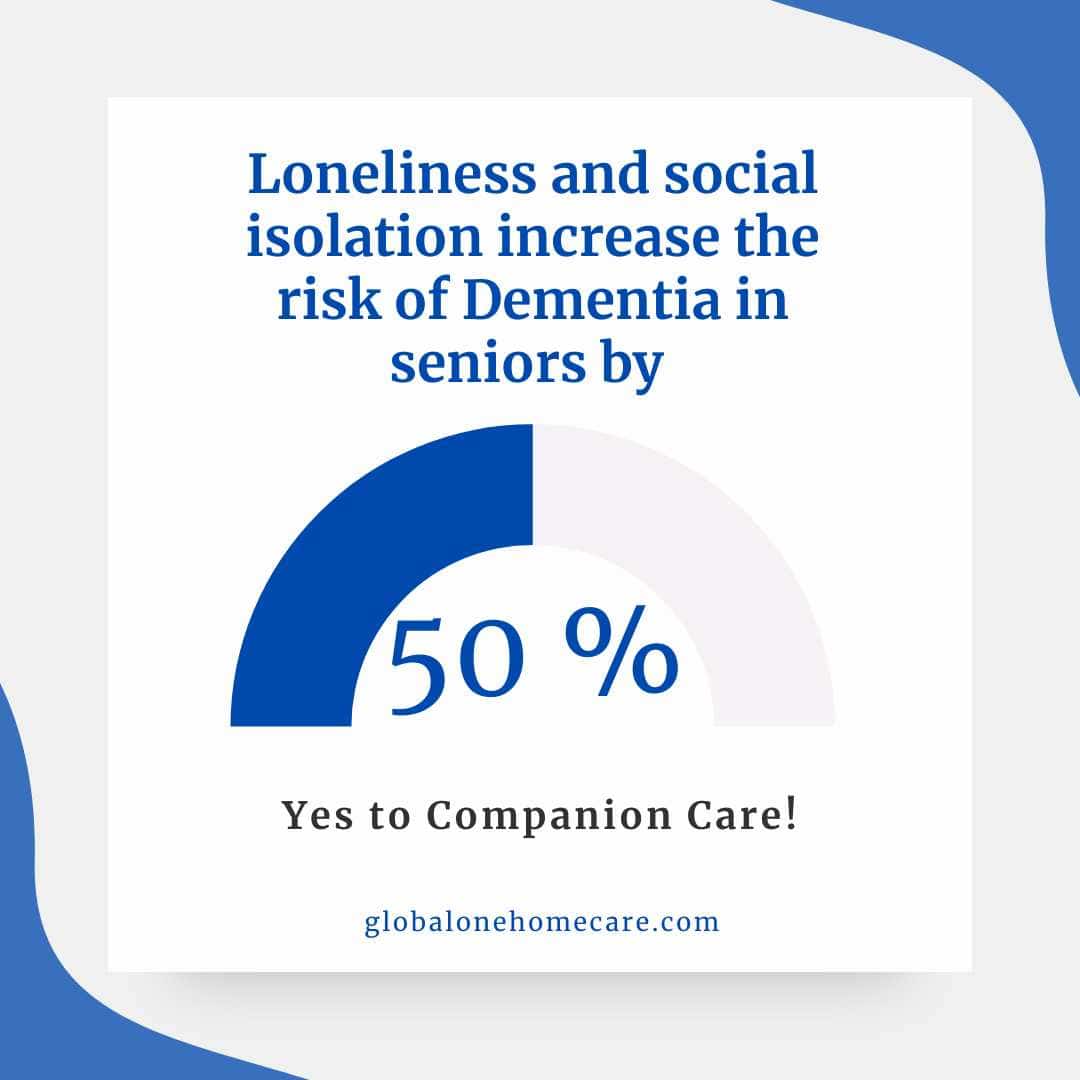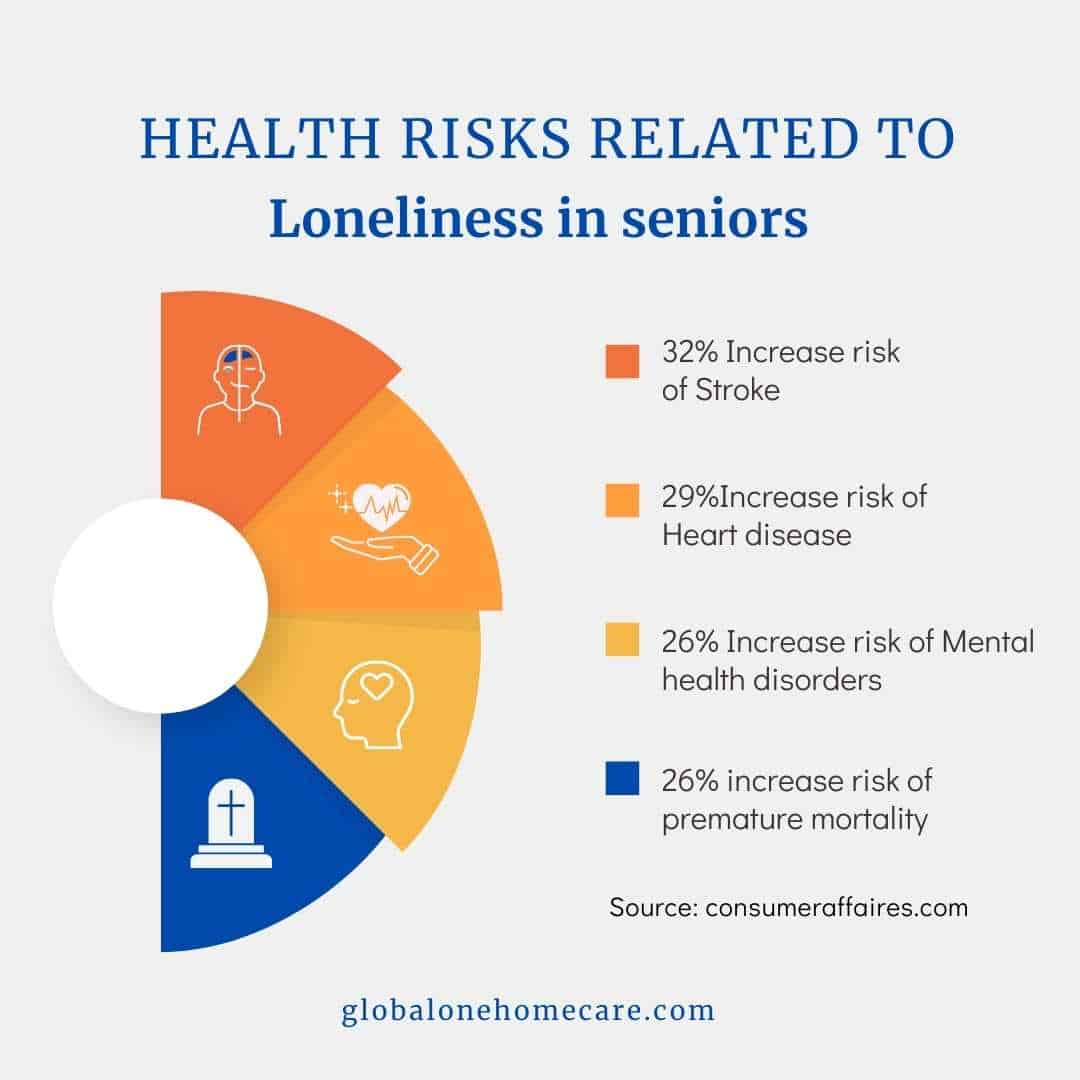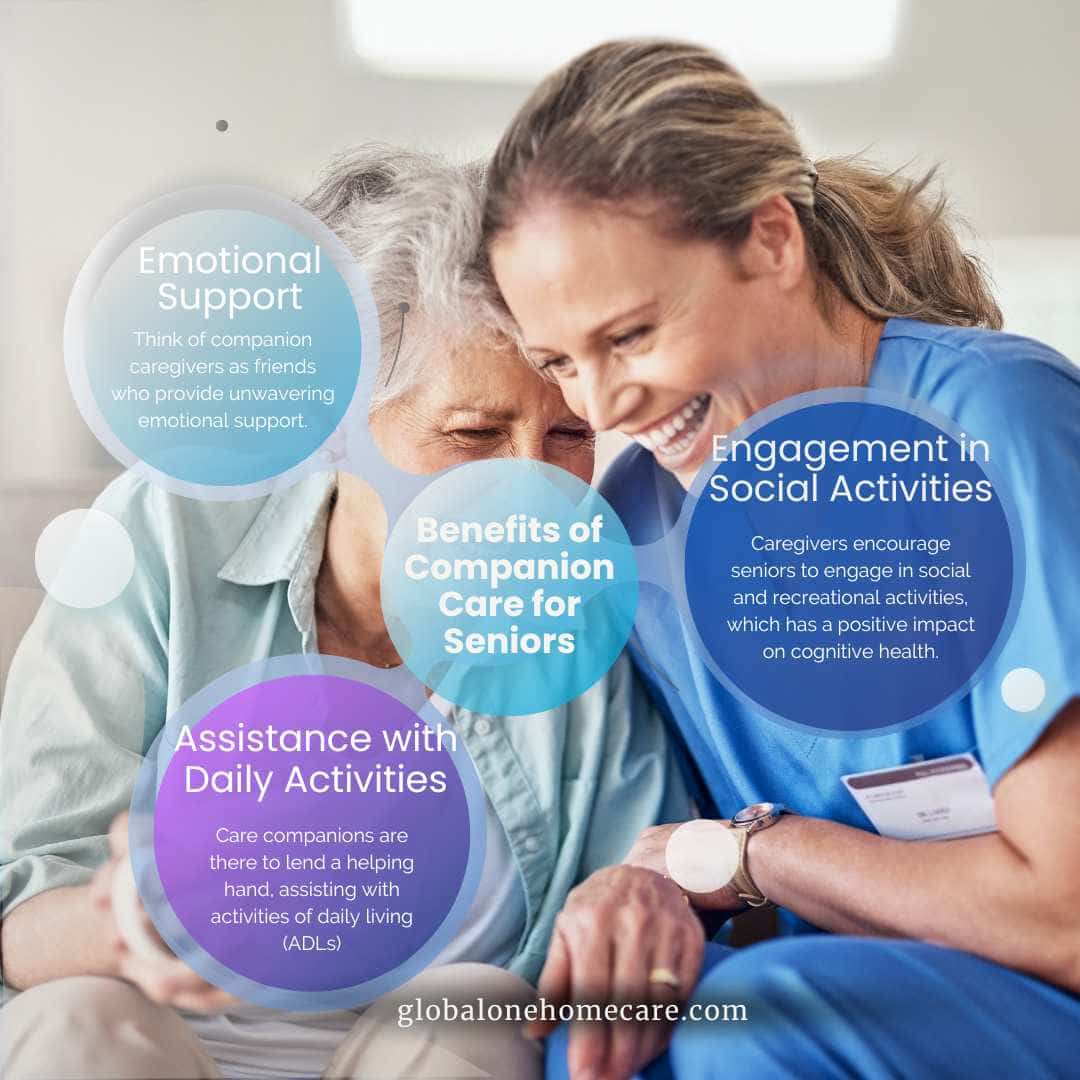-
Talk to Our Care Planner
What is Companion Care for Seniors? Benefits and Costs
Loneliness and social isolation increase the risk of dementia by 50%. That’s frightening, given that 28% of seniors in America live alone. Heartbreaking!
Without regular social interaction, many older adults experience declining mental and emotional well-being, leading to health risks that go far beyond loneliness.
For families, this raises an important question: How can we ensure our aging loved ones stay engaged, supported, and emotionally fulfilled?
This is where companion care for the elderly comes in.
Beyond regular assistance with daily tasks, companion caregivers provide much-needed human connection that helps seniors maintain independence while reducing feelings of isolation and improving their overall quality of life.
But is companion care for seniors truly a worthwhile investment? Let’s break it down.

What is Companion Care for the elderly?
Elderly companion care is a service that provides seniors with companionship, social engagement, and daily support.
Professionally trained care companions offer emotional support, engage in meaningful conversations, and help with daily tasks, all while ensuring a senior maintains independence and dignity.
Unlike traditional home healthcare, companionship care focuses on keeping seniors socially engaged and mentally stimulated rather than providing medical treatment.
Who is a companion caregiver?
A care companion is someone who makes an aging loved one’s life brighter.
They’re the friendly face that shows up not just to help with daily tasks but to bring warmth, laughter, and companionship into a senior’s life.
and what is care companion support? It’s the kind of care that helps seniors feel seen, heard, and valued.
These compassionate individuals provide senior companion care, helping older adults remain independent while enjoying meaningful social interactions.

Companion caregivers are distinct from medical caregivers in that their primary role isn’t to address complex medical needs but to improve on the quality of life for their clients.
They often spend time engaging in conversations, participating in recreational activities, and providing companionship that helps combat feelings of loneliness and isolation.
Companion Care Services May Include:
- Sharing meals and conversations
- Helping with light housekeeping
- Planning fun activities
- Accompanying seniors to appointments or social outings
- Simply being a friend when they need one
The goal of companionship care is to ensure that no senior ever feels forgotten, overlooked, or isolated.
Why is Companion Care Important for Seniors?
Besides the 50% increased risk of dementia, other health risks related to loneliness in seniors include:
- Stroke: Risk increases by 32%
- Heart disease: Risk increases by 29%
- Mental health disorders: Risk increases by 26%
- Premature mortality: Risk increases by 26%
According to Consumer Affairs, the health effects of loneliness are equivalent to smoking 15 cigarettes per day.
Seniors aren’t just looking for help with chores—they need senior companion care that brings them purpose and connection.
Elderly companion care ensures they have someone who truly cares about their happiness and well-being.
In fact, according to Consumer Affairs, the health effects of loneliness are equivalent to smoking 15 cigarettes each day.

Seniors aren’t just seeking assistance; they crave companionship and genuine relationships.
It’s heartbreaking to acknowledge that many elderly individuals experience social isolation due to changing family dynamics and the digital age.
Companion care bridges this gap, offering a friendly face and a listening ear. Social interaction is essential for mental well-being, and companion care addresses this crucial aspect.
Speaking of dementia, if you’re living with a senior with signs of the disease, here are
7 tips for living with patients with dementia from one of our companion caregivers.
Benefits of Companion Care for Seniors

Real-Life Challenges Families Face
One Reddit user shared how they built an AI-powered voice phone for their grandfather, who endlessly talks to his wife due to dementia.
The device engages in conversations, giving his grandmother a break and reducing her mental strain.
Stories like these show the real-life challenges families face as their loved ones age and why companion care for seniors can be life-changing.
What is the Cost of Companion Care?
Many families wonder: Is companion care worth it? Absolutely. A Genworth study found that the companion care cost in the U.S. averages $4,957 per month—far less than the cost of assisted living or nursing homes.
Investing in companion care for the elderly means investing in better mental and emotional health for your loved one. Elderly companion care costs vary, but the benefits—less loneliness, improved well-being, and stronger social ties—are priceless.
Factors That Influence Companion Care Cost
- Location
- The number of hours needed per week
- The specific companion care services provided
If you’re comparing costs, remember that companion care costs are often far more affordable than full-time in-home nursing care.
Factors Influencing Companion Care Costs
The cost of companion care varies based on several factors, including:
- Location,
- Level of care required, and the
- chosen agency.
It’s important to note that while cost is a consideration, the value of the companionship provided often outweighs the expense.
Comparing Companion Care Costs
On average, companion care services range from $18 to $25 per hour. While this might seem like an investment, it’s essential to compare it with other senior care options.
Nursing homes and in-home medical care often come at a higher price point and might not offer the same level of personalized attention and companionship.

Here’s everything you need to know aabout the costs of in-home care and all other adult care options in the US.
Understanding Value Over Cost
To truly understand the cost, one must consider the value. The emotional support and enhanced quality of life that companion care brings can’t be quantified in dollars.
The improvement in mental well-being, reduced feelings of isolation, and the overall positive impact on health make companion care a worthwhile investment.
Finding the Right Companion Care Agency or Caregiver
Selecting the right companion care agency is a crucial step. Look for agencies that prioritize the well-being of seniors and offer comprehensive services.
Keywords like “companion care agency” and “companion home health” can guide your search.
- Checking Credentials and Reviews
Research agency credentials, ensuring they adhere to industry standards. Reading reviews and testimonials provides insights into the agency’s reputation and the experiences of other families.
- Matching Companions to Seniors
One size doesn’t fit all in companion care. Reputable agencies take the time to match companions to seniors based on personalities, interests, and needs. This personalized approach ensures a harmonious and fulfilling companionship.

Here are key qualities to look for when
hiring the right companion caregivers
or home care agency for your loved one’s needs.
If you’re in Bostin, you can book a free call with our home care agency in Boston, Global One Home Care. Our strong vetting process allows us to guarantee the best match of a companion caregiver for your loved one’s needs.
Why Agency Matters
When choosing a companion care agency, it’s not just about finding someone to help with tasks.
It’s about establishing a meaningful relationship that enriches the lives of both seniors and caregivers.
The right agency understands the significance of this connection.
My Expert Tip
Look for agencies that prioritize the compatibility between care companions and seniors. A caring companion should be more than a caregiver – they should be a companion who genuinely cares and connects.

TL; DR
- What is companion care? A non-medical service that keeps seniors socially engaged, emotionally supported, and independent.
- What is a care companion? A friendly professional who provides companionship, helps with daily tasks, and enhances seniors’ quality of life.
- What is the cost of companion care? Typically, $18-$25 per hour or $4,957 per month.
- Is companion care worth it? Absolutely! It improves emotional well-being, reduces loneliness, and keeps seniors engaged in life.
- How do I find the right care? Research agencies, check reviews, and ensure a good match between the senior and caregiver.
Have any more questions about Companion care, or ready to find the right companion caregiver for your loved one? Book a FREE call now with one of our caregivers.
Dr. Ella Njike is the branch administrator for Global One Home Care, Boston, an agency that provides quality care for seniors and kids or adults with disabilities. With a Doctorate and extensive experience working in the healthcare industry, Dr Ella brings a unique understanding to the challenges families face. Through Global One Home Care Boston, he ensures that care extends beyond daily tasks, focuses on building genuine connections and respecting each family's journey.
Contact us
We aim to be an active partner in your care, not to take over. You are the CEO of your care, and we support you in managing it effectively.
Here are some features of our Global One Home Care
- 24/7 access to care
- Customized care plans
- Supervisory visits
- Caregiver introductions
- Nutritional planning
- Respite support
- Companionship
- Mobility assistance
- Durable Medical Equipment recommendations
- Errands and Shopping
- Fall Prevention
- ADLs
